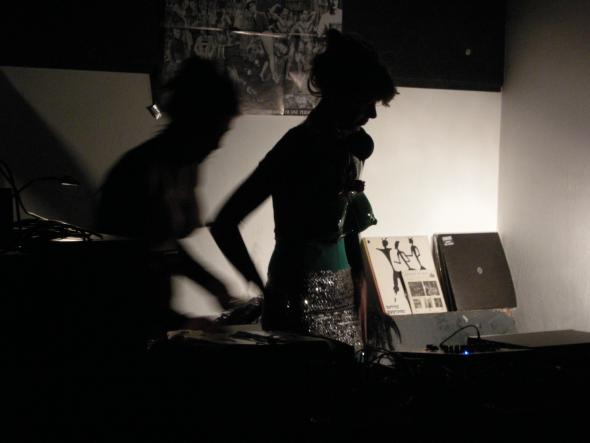Music, City, Ethnicity: Exploring Selected Music Scenes in Lisbon and Beyond
This paper explores Lisbon’s contemporary music scenes within the perspective of music and cultural circulation. It discusses the various ways in which music and cities interact, in a context of increased inter-connectedness between the local and the global. It suggests that music creation and performance (and more broadly, cultural innovation), cannot be reduced to neither grassroots nor institutional initiatives. On the premises of the existence of a so-called “global culture”, cities tend to reinvent themselves by promoting various (and eventually competing) self-definitions. In the case of Lisbon, this tendency is accompanied by a seemingly increased desire to connect (or re-connect) with the Lusophone world, eventually informing Lisbon’s self-images as an inclusive and multicultural city. In this process, new forms of ethnicity may gain visibility in the marketing of Luso-World music (or World music as practiced in the Portuguese-speaking countries). At the horizon of imagined cities as “transcultural megacities”, music tends to gain agency in the promotion of senses of place and belonging in, and to the city. The processes of cultural internationalization metropolitan spaces are increasingly visible. Likewise, the values transmitted (and reflected) by these processes (cultural diversity and openness, hybridity, transculturalism,…) are increasingly legible. World music for example has represented for the last twenty years a quasi-permanent circulation of people and sounds in a hyper-connected, open world without borders: a world that corresponds in fact to our globalized one, or at least to the “diasporic imagination” (Dunn, 2002) with which it is associated. In a world of migrants, memory and senses of place may be informed by a global and de-territorialized music which, although coming from a specific place, ends up “speaking to all” as it reaches the sphere of global culture. In this way, one may claim that if migration is the icon of the global era, World music could be its soundtrack. World music does not pretend to be the exclusive holder of the globalized world’s musical representation, although it frequently tends to be naturalized as its “official version”. There are, in any metropolis, hardly promoted music scenes which, as they make use of re-appropriated globalized sounds, communicate at the same time strong senses of place1. This article attempts to show the ways in which the processes and values associated with the internationalization of culture – which, more generally, are taking place within the context of the “new political economy and its culture” (Sennett, s.d.) –, may be explored under the light of some musical manifestations taking place in the city of Lisbon.
The processes of cultural internationalization metropolitan spaces are increasingly visible. Likewise, the values transmitted (and reflected) by these processes (cultural diversity and openness, hybridity, transculturalism,…) are increasingly legible. World music for example has represented for the last twenty years a quasi-permanent circulation of people and sounds in a hyper-connected, open world without borders: a world that corresponds in fact to our globalized one, or at least to the “diasporic imagination” (Dunn, 2002) with which it is associated. In a world of migrants, memory and senses of place may be informed by a global and de-territorialized music which, although coming from a specific place, ends up “speaking to all” as it reaches the sphere of global culture. In this way, one may claim that if migration is the icon of the global era, World music could be its soundtrack. World music does not pretend to be the exclusive holder of the globalized world’s musical representation, although it frequently tends to be naturalized as its “official version”. There are, in any metropolis, hardly promoted music scenes which, as they make use of re-appropriated globalized sounds, communicate at the same time strong senses of place1. This article attempts to show the ways in which the processes and values associated with the internationalization of culture – which, more generally, are taking place within the context of the “new political economy and its culture” (Sennett, s.d.) –, may be explored under the light of some musical manifestations taking place in the city of Lisbon.
Note: This paper will soon be published in its full version in a special issue on “Music and Migration” from the Migrações review of the Observatório da Imigração (www.oi.acidi.gov.pt), a public organization dedicated to the knowledge and support for immigrants in Portugal. The special issue will be edited by Maria de São José Côrte-Real and Salwa El-Shawan Castelo-Branco, from the Instituto de Etnomusicologia (Universidade Nova de Lisboa).
References
Bennett, Andy, and Peterson, Richard A. (ed.) (2004), Music Scenes. Local, Translocal, and Virtual, Nashville: Vanderbilt University Press.
Dunn, Christopher (2002), “Tropicália, Counterculture and the Diasporic Imagination in Brazil”, in Perrone, Charles A., and Dunn, Christopher (ed.), Brazilian Popular Music & Globalization, London & New York: Routledge, p. 72-95.
Sennett, Richard (s.d.), “The New Political Economy and Its Culture”, http://www.virginia.edu/iasc/HHR_Archives/Democracy/2.1FSennett.pdf (accessed September 20th, 2009).
- 1. A music scene can be defined as a local and inconspicuous ensemble of variable spaces and places where clusters of musicians, producers, and fans explore their common musical tastes and distinctive lifestyle choices. A music scene may be more or less independent from the multinational music market. Although most music scenes come and go with hardly a trace, a few – Kingston-Jamaica Reggae, London Punk, Bronx Hip-Hop, etc. – achieve fame and spur musical innovations. It is rather common for any city to have a Hip-Hop scene, a Techno scene, a Punk scene, an Indie scene, a Metal scene, and many other scenes, based on other types of music. Andy Bennett and Richard Peterson have suggested various levels of relevance for the analysis of music scenes: local, translocal, and virtual (Bennett and Peterson, 2004).